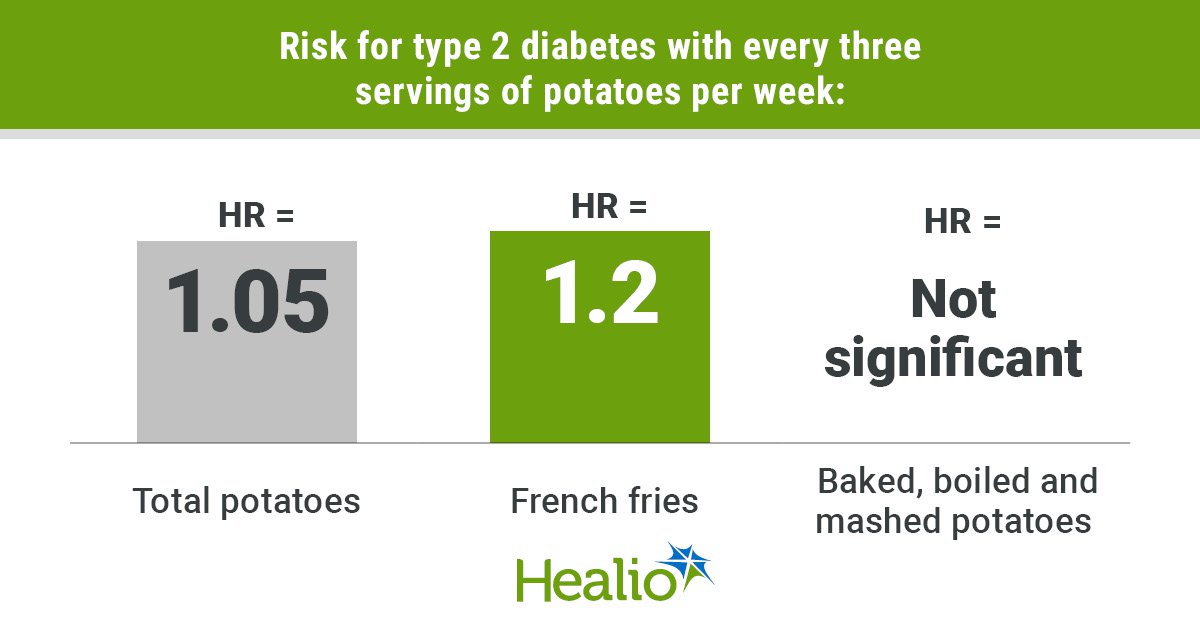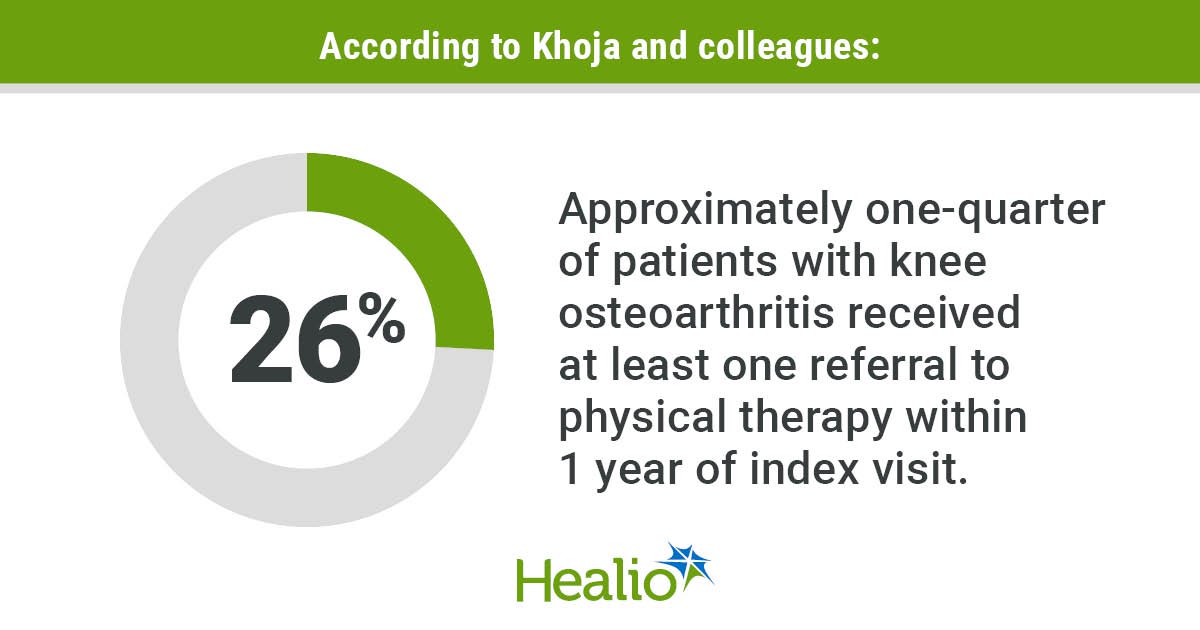August 07, 2025
3 min read
Key takeaways:
- Risk for type 2 diabetes increased by 5% for every three servings of total potatoes eaten per week.
- Potatoes other than french fries were not associated with higher type 2 diabetes risk.
Eating more french fries may increase risk for developing type 2 diabetes, but higher intake of other types of potatoes is not tied to elevated risk for the disease, according to data published in The BMJ.
In an analysis of data from the Nurses’ Health Study, Nurses’ Health Study II and Health Professionals Follow-up Study, risk for developing type 2 diabetes increased by 5% for every three servings of any potato consumed. However, when french fries were omitted, risk for type 2 diabetes did not significantly change with intake of baked, boiled and mashed potatoes.

Data were derived from Mousavi SM, et al. BMJ. 2025;doi:10.1136/bmj-2024-082121.
“These findings reinforce the importance of focusing on overall dietary patterns and food preparation methods rather than just broad food categories,” Seyed Mohammad Mousavi, PhD, a postdoctoral research fellow in the department of nutrition at the Harvard T.H. Chan School of Public Health, told Healio. “For patients at risk of type 2 diabetes, limiting fried foods — especially french fries — and prioritizing whole grains as the main source of carbohydrates may help reduce risk. These results also support public health messaging that emphasizes food swaps and healthier cooking techniques.”

Seyed Mohammad Mousavi
Researchers obtained data from 205,107 adults who completed food frequency questionnaires every 2 to 4 years and had no previous type 2 diabetes diagnosis. Intake of baked, boiled and mashed potatoes as well as french fries was documented. Type 2 diabetes diagnoses were self-reported and confirmed if a person met one of the American Diabetes Association’s criteria listed on a supplementary questionnaire.
Among the participants, 22,299 were diagnosed with type 2 diabetes during 5,175,501 person-years of follow-up. In pooled analysis, adults who ate seven or more servings of potatoes per week had higher risk for type 2 diabetes than those who ate less than one serving of potatoes per week (HR = 1.12; 95% CI, 1.02-1.24; P < .001). Each three servings of potatoes a person consumed per week raised risk for type 2 diabetes (HR = 1.05; 95% CI, 1.02-1.08).
Diabetes risk by potato preparation
People who ate five or more servings of french fries each week had higher risk for type 2 diabetes than those eating less than one serving per week (HR = 1.27; 95% CI, 1.08-1.49; P < .001). Each three-serving increase in french fry intake per week increased type 2 diabetes risk by 20% (HR = 1.2; 95% CI, 1.12-1.28). When baked, boiled and mashed potato intake was combined, no increased risk for type 2 diabetes was found.
Mousavi said the findings were somewhat surprising, but confirmed how large of a role food preparation plays in health effects.
“French fries are typically deep-fried at high temperatures, often in oils that, during much of our study period, contained trans fats,” Mousavi said. “They also tend to be high in sodium and calories. In contrast, baked, boiled or mashed potatoes don’t have these same added factors, which likely explains the difference in risk.”
Researchers estimated that replacing three servings of potatoes each week with whole grains lowered type 2 diabetes risk by 8%. Eating three servings of whole grains in place of baked, boiled or mashed potatoes decreased type 2 diabetes risk by 4%, whereas replacing french fries with whole grains cut the risk for type 2 diabetes by 19%. Conversely, people who ate white rice instead of baked, boiled or mashed potatoes had a 19% increase in type 2 diabetes risk.
Researchers also conducted a meta-analysis of 10 prospective studies in addition to the three groups included in the study. Findings of the meta-analysis were similar, with every three weekly servings of total potatoes raising type 2 diabetes risk by 3%. Every three servings of fried potatoes consumed per week increased type 2 diabetes risk by 16%, but non-fried potato intake was not tied to a change in type 2 diabetes risk.
Incorporating potatoes into diet
In a related editorial, Daniel B. Ibsen, PhD, associate professor and senior researcher at Steno Diabetes Center, Aarhus University Hospital in Denmark, and Yanbo Zhang, PhD, a postdoctoral fellow at Albert Einstein College of Medicine in New York, wrote that the study revealed that potatoes may not have as negative of an impact on glycemia and type 2 diabetes risk as previously thought. However, Ibsen told Healio that the method of preparation and the food people choose to replace with potatoes can make a large difference in health outcomes.

Daniel B. Ibsen
“[People] should be more open to consume boiled, baked or mashed potatoes as part of a healthy diet that also includes lots of whole grains,” Ibsen said in an interview. “If you consume a lot of rice, then choosing boiled potatoes instead of rice a few more times per week would be a good switch for your own health and a more climate-friendly alternative, though this particular study did not investigate the climate impact of potatoes.”
Ibsen said future intervention studies should be conducted to assess how eating potatoes prepared with different methods may affect health, particularly for those with type 2 diabetes.
Reference:
For more information:
Daniel Ibsen, PhD, can be reached at dbi@ph.au.dk or on LinkedIn @DanielBorchIbsen.
Seyed Mohammad Mousavi, PhD, can be reached at endocrinology@healio.com.









